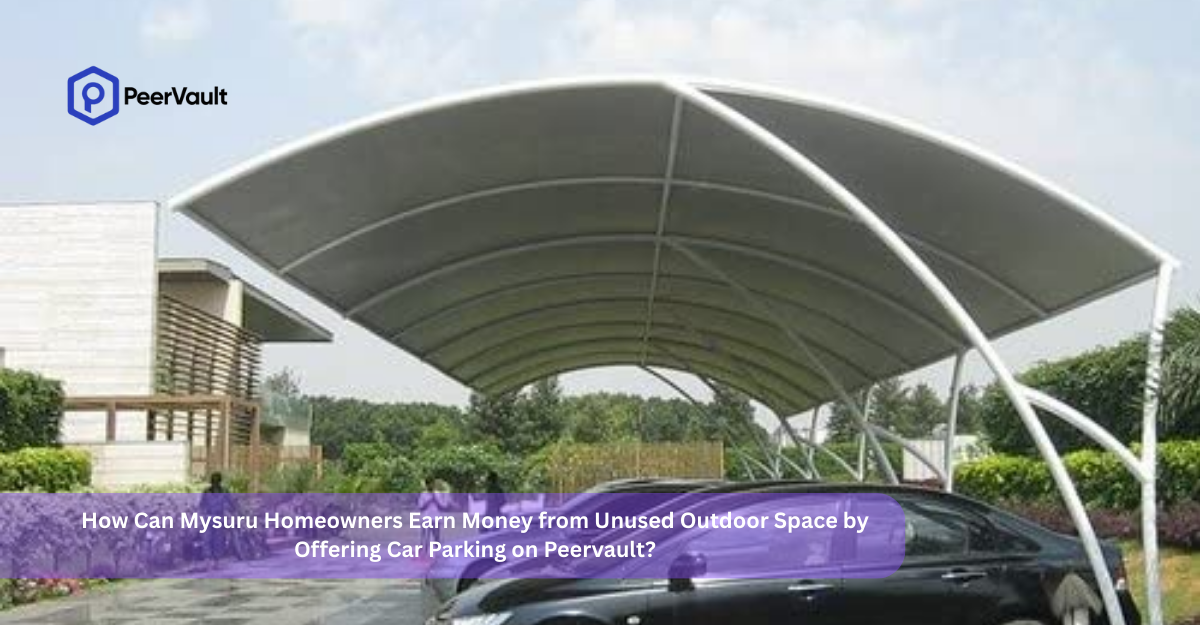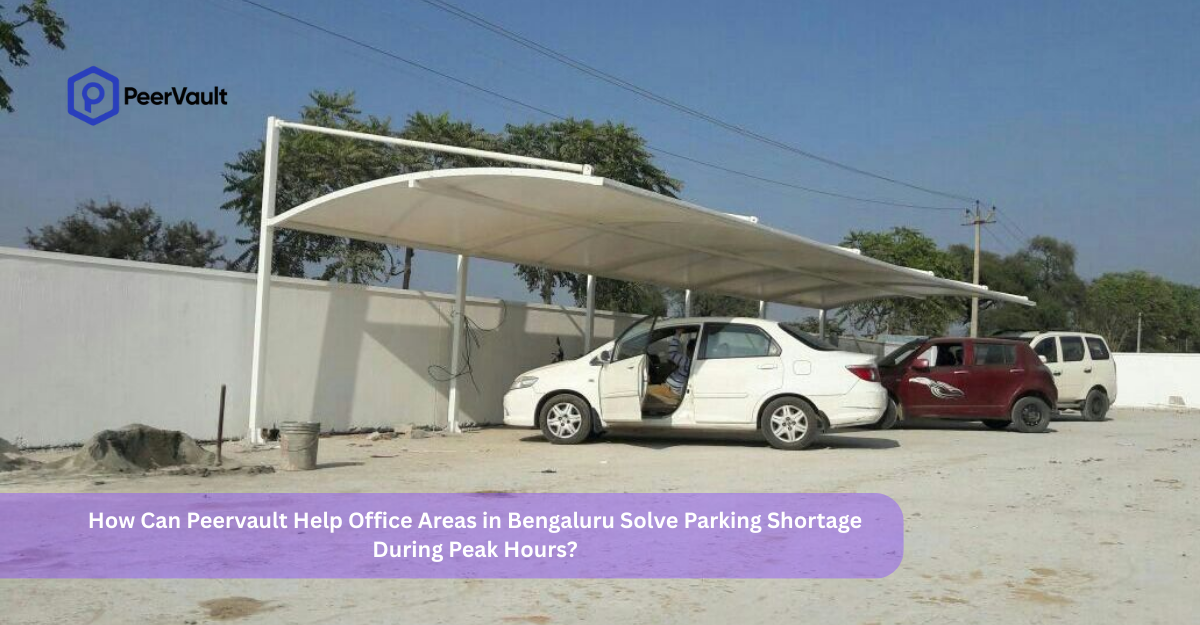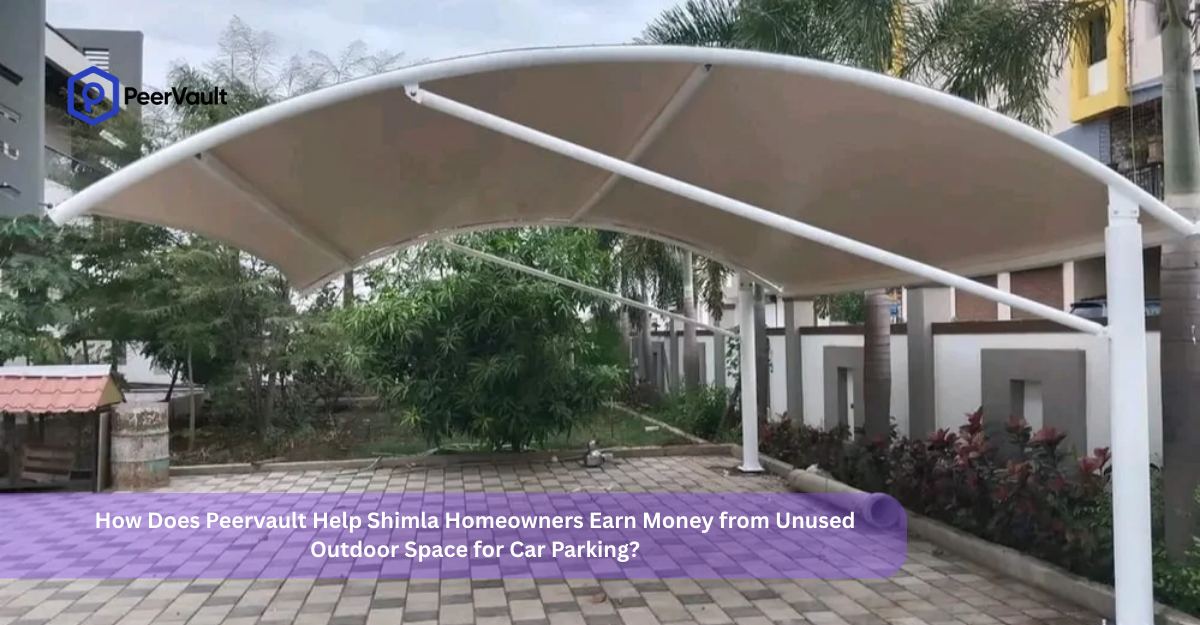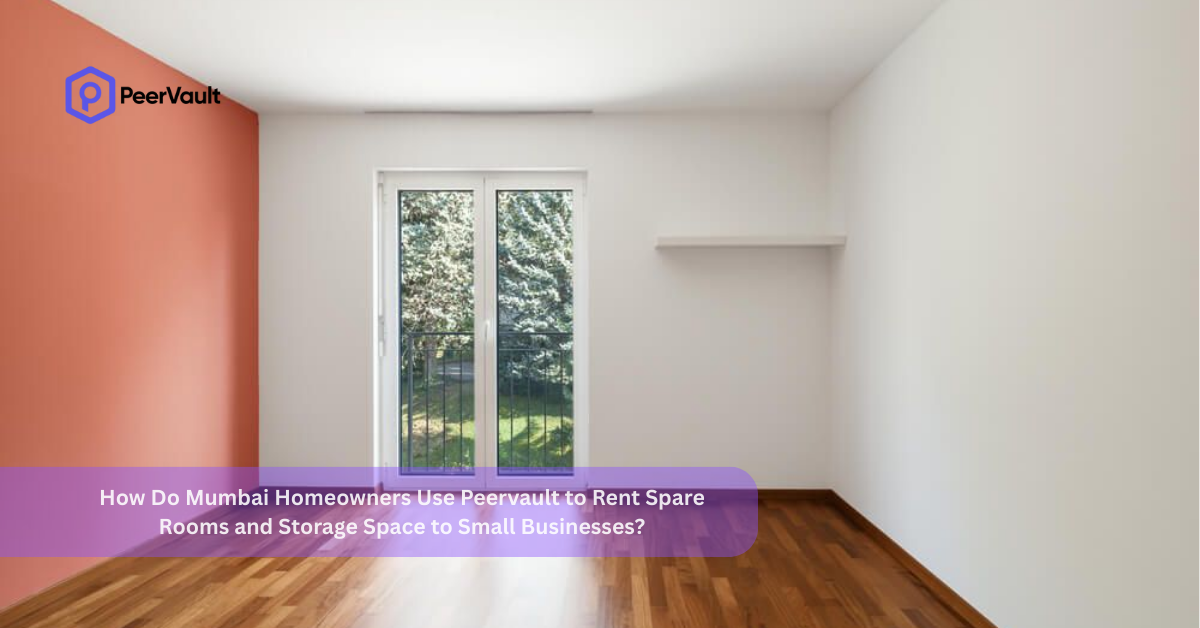Convenient Tourist Self-Storage in Agra Near the Taj Mahal
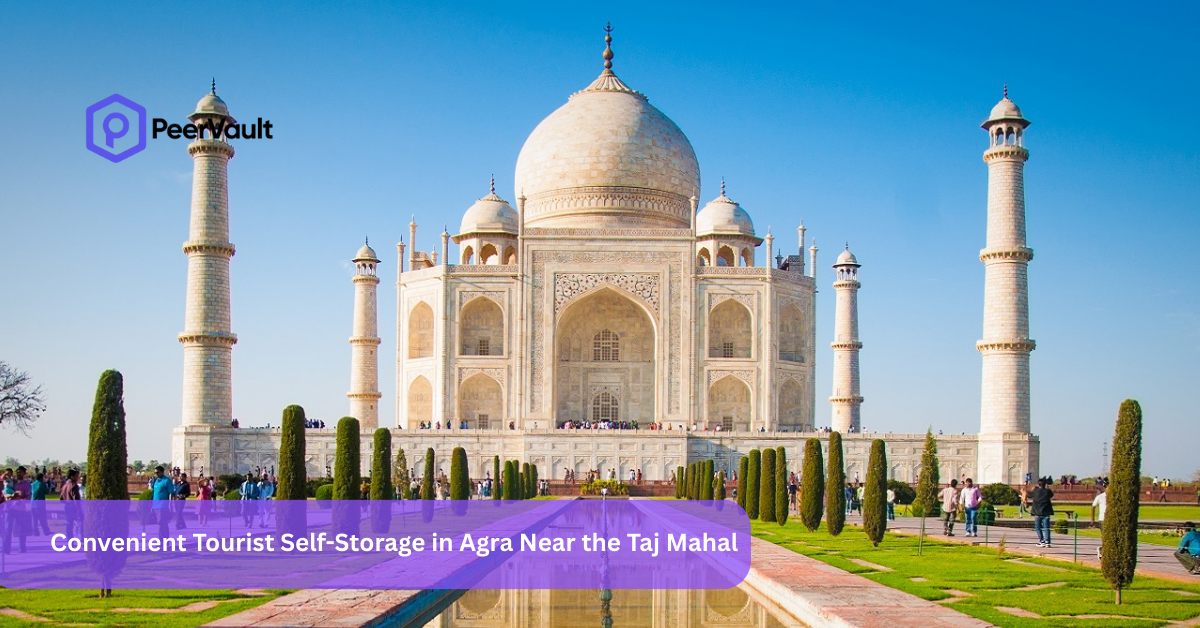
Agra, home to the iconic Taj Mahal, is a city that attracts millions of tourists every year. Known for its rich history, stunning architecture, and vibrant culture, it is a must-visit destination for travelers from around the world. However, navigating the city’s crowded streets while carrying heavy bags or luggage can be both inconvenient and tiring. This is where tourist self-storage services come to the rescue, providing an ideal solution for those looking to store their belongings securely while they explore the city’s most famous landmarks.
Conveniently located near the Taj Mahal, self-storage facilities offer tourists a safe and accessible space to store their bags, backpacks, or personal items for a few hours or days. Whether you’re looking to offload your heavy luggage before a day of sightseeing or need a place to store items while you visit other historical sites like Agra Fort, these services allow you to roam freely without the burden of carrying unnecessary weight.
Self-storage options near the Taj Mahal are designed with tourists in mind, providing ease of access, affordable pricing, and security for your valuables. With 24/7 surveillance, flexible storage durations, and a variety of storage sizes, these services make it easier for visitors to enjoy their trip without worrying about their belongings. Whether you’re on a short visit or a longer stay, tourist self-storage ensures that you can fully enjoy Agra’s beauty and history without any hassle.
1. Why Tourists Need Self-Storage Near the Taj Mahal
Agra’s popularity as a tourist destination, particularly around the Taj Mahal, comes with a surge in visitor traffic. This high volume of tourists means that public spaces, including iconic attractions, are often crowded. Carrying heavy bags or large luggage through busy sites like the Taj Mahal or Agra Fort can detract from the experience, making storage services a necessity for many travelers.
Several factors contribute to the demand for self-storage:
- Security at Tourist Spots: The Taj Mahal, Agra Fort, and other famous landmarks often impose restrictions on what visitors can carry. Large bags or valuables may not be permitted, leading tourists to seek safe and secure alternatives.
- Time Gaps Between Check-in and Check-out: Many tourists arrive in Agra hours before their check-in time or leave after check-out. Having somewhere to store their luggage while they explore Agra becomes critical to making the most of their visit.
- The Need for Freedom and Flexibility: Tourists often want to explore without the burden of carrying large bags or extra items. A self-storage solution provides the flexibility to enjoy the city without worrying about their belongings.
2. The Evolution of Self-Storage in Agra
Self-storage, though a well-established service in countries like the US and UK, is relatively new in India. Agra, home to the Taj Mahal, has witnessed a significant rise in tourism, creating a demand for secure and convenient luggage storage options. Traditionally, tourists either left their bags at hotels or carried them while sightseeing, both of which posed security risks and inconveniences. The advent of modern self-storage services in Agra, however, has revolutionized how travelers manage their belongings. Services like PeerVault offer secure, flexible, and easily accessible storage units for short durations, allowing tourists to explore the city without the burden of their luggage.
These services provide a much-needed solution, with features like 24/7 access, advanced security systems, and the convenience of online booking. As technology continues to evolve, self-storage in Agra is becoming more accessible and efficient, with options for both short-term and long-term storage. The growing popularity of peer-to-peer platforms also contributes to a more community-based approach, offering additional storage spaces for tourists. This evolution has made Agra a more convenient and tourist-friendly destination, where travelers can store their belongings securely and enjoy the historic landmarks without any hassle.
3. Benefits of Using Tourist Self-Storage Near the Taj Mahal
Using self-storage services offers a variety of advantages for tourists, including:
- Increased Convenience: The ability to drop off your bags and freely explore Agra makes sightseeing more enjoyable. Whether you’re visiting the Taj Mahal or wandering through the bustling markets of Agra, self-storage enables a more relaxed experience.
- Improved Security: Many self-storage facilities are equipped with state-of-the-art security systems, including surveillance cameras, biometric access, and secure lockers. This ensures that tourists’ valuable belongings remain safe and accessible only to them.
- Affordable Options: Modern storage facilities often offer flexible pricing models, allowing tourists to pay for only the time they need. Whether you need a few hours or a full day, these storage solutions are affordable and cater to all budgets.
- Space Efficiency: Not all tourists are traveling with large suitcases. Smaller personal items, such as backpacks, shopping bags, or excess clothing, can be securely stored, helping visitors travel light.
4. How PeerVault’s P2P Self-Storage Platform is Revolutionizing the Industry
As a peer-to-peer self-storage platform, PeerVault offers a unique service that connects people who need storage space with individuals who have unused space available. This model allows for a more decentralized and flexible storage option, with several key benefits:
- Availability of Local Spaces: PeerVault taps into the local community in Agra, making it easier for tourists to find storage options near their location, particularly near major tourist sites like the Taj Mahal.
- Affordability: PeerVault’s model eliminates the overhead costs associated with traditional storage companies, passing the savings on to the customer. This means tourists can access affordable storage options without the high costs of commercial warehouses.
- Easy Booking and Access: PeerVault allows tourists to easily book storage spaces through a user-friendly app or website, streamlining the process and ensuring a hassle-free experience. Many facilities also offer flexible hours, so travelers can retrieve their belongings at their convenience.
- Supporting the Local Economy: By using local spaces for storage, PeerVault helps integrate the local community into the global economy. This creates more job opportunities and promotes the sharing economy, which is a growing trend in India.
5. How to Choose the Right Tourist Self-Storage Service in Agra
When selecting a self-storage service near the Taj Mahal or any other location in Agra, there are several factors to consider:
- Location: Ideally, you want a storage solution that is close to major tourist attractions to minimize the time spent traveling. Look for services near the Taj Mahal, Agra Fort, or other significant landmarks.
- Security Measures: Ensure that the storage provider has appropriate security protocols, including surveillance cameras, secure locks, and 24/7 monitoring. The safety of your belongings should always be the top priority.
- Pricing: Consider how long you’ll need storage for and compare prices across different services. Some services offer hourly rates, while others may provide discounts for longer storage durations.
- Customer Reviews: Check customer feedback on platforms like Google, Yelp, or specialized travel forums. Positive reviews can give you an indication of the reliability and quality of service.
- Additional Services: Some self-storage services may offer extras such as luggage wrapping, concierge services, or even tours of the city. Look for services that provide value-added benefits to enhance your experience.
6. The Logistics of Self-Storage for Tourists in Agra
Self-storage has become a popular and convenient solution for tourists visiting Agra, particularly those exploring iconic attractions like the Taj Mahal, Agra Fort, and Mehtab Bagh. It offers a simple process that allows travelers to store their luggage securely while they enjoy their visit without the burden of carrying heavy bags. The logistics of this service can be broken down into easy-to-understand steps, ensuring a smooth experience for both tourists and service providers.
-
Booking the Storage Space
The first step is reserving storage space. Tourists can book a unit through a service provider’s website or mobile app, which is the most efficient option. Pre-booking is highly recommended, especially during peak tourist seasons when the demand for storage space tends to increase. Some self-storage services also allow walk-in bookings, but having a reservation ensures you won’t be left without a spot. Online platforms let tourists choose from different unit sizes based on their needs, whether it’s a small locker for personal items or a larger unit for suitcases.
-
Drop-Off: Storing Luggage with Ease
Once at the storage location, tourists check in by providing identification and confirming their booking. This step ensures security and helps the service provider track who has access to the stored items. After completing the check-in process, tourists are guided to their storage space. Most storage facilities have secure lockers or units with advanced locking systems to safeguard belongings. Some services even provide digital lockers, ensuring an extra layer of security and convenience.
The location of these storage services is crucial. Many self-storage companies in Agra strategically place their units close to popular tourist spots, allowing for easy access to storage without straying far from key attractions. Services like PeerVault offer flexible options in locations close to the Taj Mahal, making it easier for travelers to drop off their luggage before heading out to explore.
-
Exploring Agra: Luggage-Free Adventures
Once their belongings are safely stored, tourists are free to enjoy the sights of Agra without the hassle of carrying heavy bags. Visiting iconic sites like the Taj Mahal, Agra Fort, and the bustling local markets can be stressful if you’re weighed down by luggage. Self-storage provides peace of mind, allowing tourists to roam the city comfortably and explore these historic landmarks without any encumbrance. With luggage out of the picture, tourists can fully immerse themselves in the beauty and culture of Agra.
-
Pick-Up: Quick and Easy Retrieval
When tourists are done exploring and ready to continue their journey, retrieving their belongings is simple and quick. Many storage services, including PeerVault, offer flexible pick-up times, which is particularly useful for travelers with late flights or those needing extra time to finish their sightseeing. Some facilities allow 24/7 access, making it convenient for tourists to pick up their luggage at any time of day or night. If needed, tourists can also extend their storage period with most services, ensuring that they don’t have to rush through their plans.
This ease of access and flexible service hours are part of the reason why self-storage services have become so popular with travelers. Instead of worrying about when and where to retrieve their items, tourists can rest assured that their luggage will be available when they need it.
7. The Role of PeerVault in Enhancing the Traveler Experience
PeerVault, a peer-to-peer (P2P) self-storage platform, is transforming the self-storage experience for tourists in Agra and beyond. With its innovative approach, PeerVault enhances convenience, security, and flexibility for travelers by connecting them with local hosts offering storage spaces. This unique P2P model not only makes storage more accessible but also promotes a sense of community by utilizing unused spaces within local areas.
-
Connecting Tourists with Local Hosts
One of the main advantages of PeerVault is its ability to link tourists with local hosts who offer storage space, such as spare rooms, closets, or even garages. This approach ensures that tourists can find storage options close to popular attractions, such as the Taj Mahal, making it easier to store luggage without going out of their way. This community-based model is both convenient and cost-effective, as it allows locals to earn extra income by providing their unused space to travelers.
-
Customization and Flexibility
PeerVault offers incredible flexibility, catering to tourists’ varying needs. Whether a traveler requires storage for a few hours or several days, the platform allows users to book the amount of space and time they need, creating a customized experience. This flexibility allows tourists to adjust their plans as needed, ensuring they don’t have to worry about rigid time constraints.
-
Environmental Benefits and Sustainability
In addition to convenience, PeerVault’s P2P model also supports sustainability. By utilizing existing space within the local community, it reduces the need for new construction and minimizes the environmental impact of building additional storage facilities. This eco-conscious approach resonates with travelers who are increasingly aware of their environmental footprint.
8. The Future of Self-Storage in Agra and Beyond
As tourism in Agra continues to rise, the demand for self-storage services is expected to grow significantly. The future of self-storage in Agra and other popular tourist destinations will likely see the integration of more advanced digital platforms, offering streamlined booking and payment options. Peer-to-peer (P2P) models like PeerVault are expected to expand, providing travelers with more flexible and convenient storage solutions. This shift will give tourists greater control over their storage needs, offering a wider variety of options tailored to individual schedules. Additionally, the growing focus on sustainability will encourage self-storage providers to adopt eco-friendly practices, such as utilizing existing community spaces and minimizing construction. As both technology and community-based models evolve, self-storage will play an increasingly important role in enhancing the travel experience, allowing tourists to enjoy their visits without the burden of carrying heavy luggage. This trend is set to shape the future of tourism infrastructure.
Frequently Asked Questions (FAQs)
1. What is tourist self-storage and how does it benefit travelers?
Answer : Tourist self-storage is a service that allows travelers to store their luggage and personal belongings temporarily while they explore a destination. This service is especially useful when tourists need to check out of their hotel before their departure time or if they arrive early and don’t want to carry around heavy bags. The primary benefit is that it allows visitors to enjoy sights like the Taj Mahal without the burden of carrying luggage. Self-storage facilities offer secure, easily accessible storage units, often near popular tourist attractions, making it convenient for tourists to drop off and pick up their belongings.
2. How safe are the self-storage facilities near the Taj Mahal?
Answer : Safety is a top priority for most self-storage facilities near the Taj Mahal, especially when using trusted platforms like PeerVault. These facilities typically have robust security systems in place, including 24/7 surveillance cameras, alarm systems, and secure access codes or locks to ensure that your belongings are safe. Many services also offer climate-controlled units, providing extra protection for delicate items like electronics or artwork. Before choosing a storage provider, always check their security protocols, customer reviews, and certifications to ensure that your items are in good hands.
3. How do I access my stored items?
Answer : Access to your stored items typically depends on the provider’s policy. Many self-storage services offer flexible access hours, with some allowing 24/7 access to your belongings. Others may have specific operating hours, such as 9 AM to 6 PM. When booking, make sure to clarify the hours of access and any additional rules regarding retrieval. With PeerVault, for example, you can access your items easily during the agreed-upon hours, ensuring that you can drop off or pick up your luggage as per your travel schedule.
4. Are there any restrictions on what I can store in the self-storage units?
Answer : Yes, most self-storage facilities have a few restrictions on what you can store. Prohibited items generally include:
- Hazardous materials: Flammable, explosive, or toxic substances.
- Perishable goods: Items such as food or plants.
- Illegal items: Any unlawful or prohibited items, such as drugs or firearms.
If you have any doubts about what you can or cannot store, it’s always a good idea to check the terms and conditions of the storage provider before booking to avoid any issues.
5. How much does it cost to use self-storage near the Taj Mahal?
Answer : The cost of self-storage near the Taj Mahal varies depending on the size of the unit, the duration of storage, and the level of security required. On average, prices can range from INR 100 to INR 500 per hour for a small locker, with daily rates ranging from INR 500 to INR 2000 or more. The price may also depend on factors such as location and the time of year, with peak tourist seasons potentially leading to higher costs. PeerVault offers competitive pricing by connecting travelers with local storage hosts, ensuring that you can find a solution that fits your budget.
6. Can I cancel my storage reservation if my plans change?
Answer : Yes, most self-storage services, including PeerVault, offer cancellation policies that allow you to cancel or modify your reservation if your travel plans change. The terms vary, but typically, you can cancel your booking up to a certain time before your scheduled drop-off for a full or partial refund. Always review the specific cancellation policy of the service you choose to ensure that you’re aware of any deadlines or fees associated with cancellations.
Conclusion
Convenient tourist self-storage services near the Taj Mahal are a game-changer for visitors to Agra, offering a secure and hassle-free way to store luggage while exploring the city’s historic sites. Platforms like PeerVault provide flexible, cost-effective storage options, ensuring that tourists can move freely through Agra without worrying about their belongings.
With various storage sizes and types available, travelers can choose the best option for their needs, whether they need to store a small backpack for a few hours or require larger spaces for more extensive luggage. Additionally, the emphasis on security, ease of access, and competitive pricing makes these services a reliable and valuable resource.
In a bustling tourist destination like Agra, where visitors are keen to maximize their time at iconic sites like the Taj Mahal, self-storage solutions provide the freedom to explore without the burden of heavy bags. By utilizing self-storage, tourists not only enhance their travel experience but also ensure that their valuables are kept safe, secure, and easily accessible.
In summary, whether you’re a solo traveler, a family, or a group of tourists, choosing self-storage near the Taj Mahal ensures that your visit to Agra is as enjoyable and stress-free as possible.
Popular Posts

